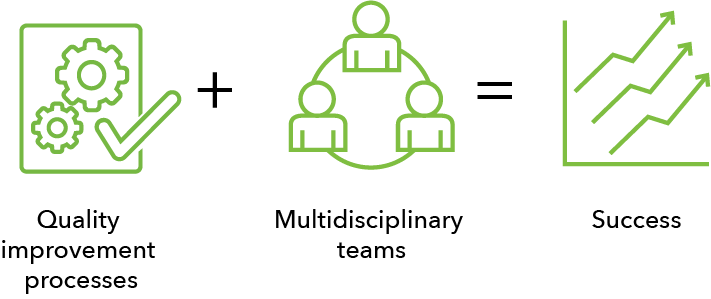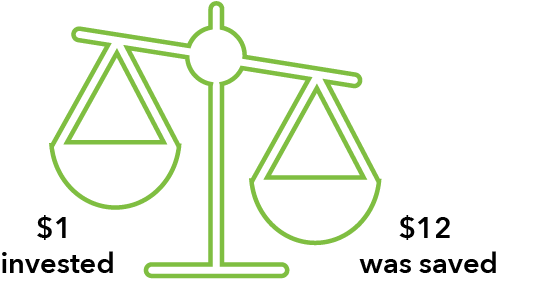Transitions of care are crucial steps in the patient healthcare journey, especially for older adults. The challenges are many, as transitioning from hospital to home, nursing home, or other facilities opens an avenue for miscommunication and uncoordinated patient care. At the same time, however, there is opportunity to improve patient care, and one of these areas is medication management. In fact, the World Health Organization has identified transitions in care as a key focus area for patient safety and reducing medication-related risk.4
Without clear, consistent communication and education, care transitions can result in a variety of medication-related problems. Care transitions often result in changes to medication therapy, and patients don’t often remember such changes amid their transitions. In a recent study on patients who transitioned care, less than half were able to recall whether their medications had changed, increasing their risk for non-adherence and improper use.4 These issues lead to more downstream medication-related problems that result in potentially dangerous and costly—but preventable—hospitalizations and ER visits.
Though the challenges of medication management in transitions of care are numerous, they are also well-known. Organizations like the American Society of Health-System Pharmacists (ASHP) and American Pharmacists Association (APhA) have identified key strategies for medication management during transitions of care. Here are just three effective and cost-efficient strategies for enhancing medication therapy in care transitions.
Collaborative care and communication
ASHP and APhA identified multidisciplinary care and coordination as a key success point in managing medications in care transitions. When evaluating program outcomes in care transitions, they found more benefits to patient care, decreased hospital days, and lower readmission rates among programs that overcame silo management challenges.1
Programs that implemented continuous quality improvement processes with multidisciplinary teams also demonstrated positive results.1

Pharmacists play a particularly important role in medication management for transitions of care. They can collaborate with providers to ensure that patient medications are up to date and delivered to the patient. Pharmacists can also work with long-term care providers to ensure that patients transitioning from the hospital have access to their medications.
Pharmacist interventions
Pharmacist interventions during care transitions are another effective medication management strategy that can help reduce readmissions and medication-related problems. One-on-one interventions allow pharmacists to identify how patients are taking their medications and whether that aligns with changes made to their regimen during their care transitions. With the help of clinical decision support tools, electronic health records, and advanced technologies, pharmacists can identify risks associated with a specific patient’s regimen and make recommendations to personalize and enhance medication therapy.
Having pharmacists dedicated to medication management in care transitions not only personalizes care but reduces readmission rates. A recent study found that pharmacist interventions had proven impacts on 30-day readmissions, with 11% absolute and 50.2% relative reduction.2 Pharmacist interventions have shown to improve outcomes and save downstream costs, and providers can take advantage of this partnership.
The study further found that for every $1 invested in pharmacist interventions, $12 was saved.2

Patient education
Care collaboration and pharmacist interventions are critical strategies to managing medications in care transitions, but no method is useful if patients are not on board.

Lack of motivation and education are among the top patient-related barriers to medication adherence.3
Many patients don’t remember or understand changes to their medications during transitions of care. While providers and pharmacists need to communicate with one another to ensure smooth transitions, they also need to communicate with patients to ensure they are informed of the care plan. Further than that, educating patients on their medication therapy can empower them to take an active part in their care plan.
There are extensive opportunities to enhance medication therapy in care transitions to prevent unnecessary readmissions and utilization. While the list provided above is not exhaustive, bringing providers, pharmacists, and patients together to collaborate is a major step to identifying further opportunities to improve outcomes.
Share this:



